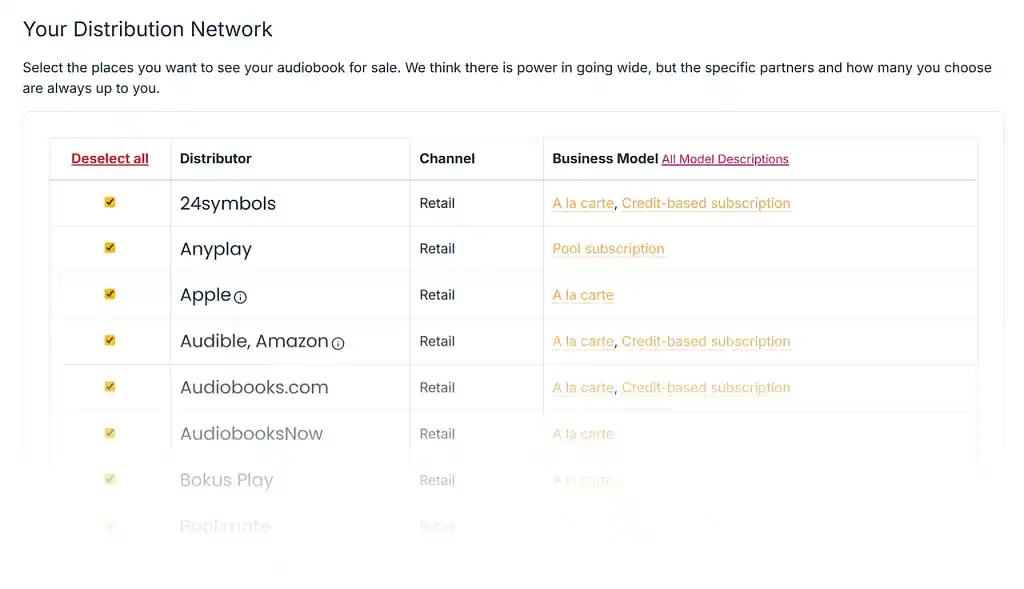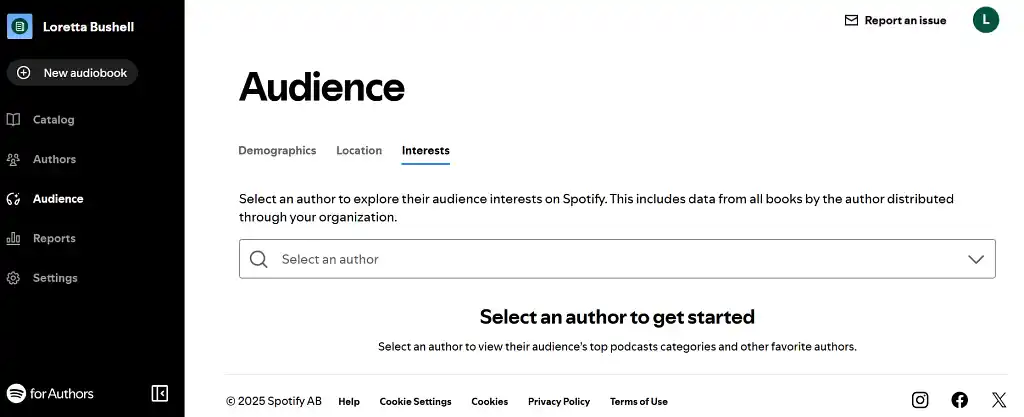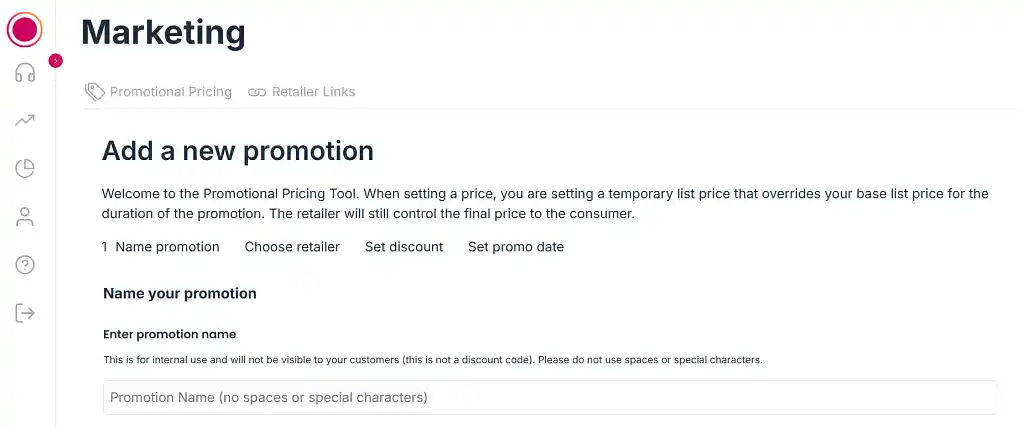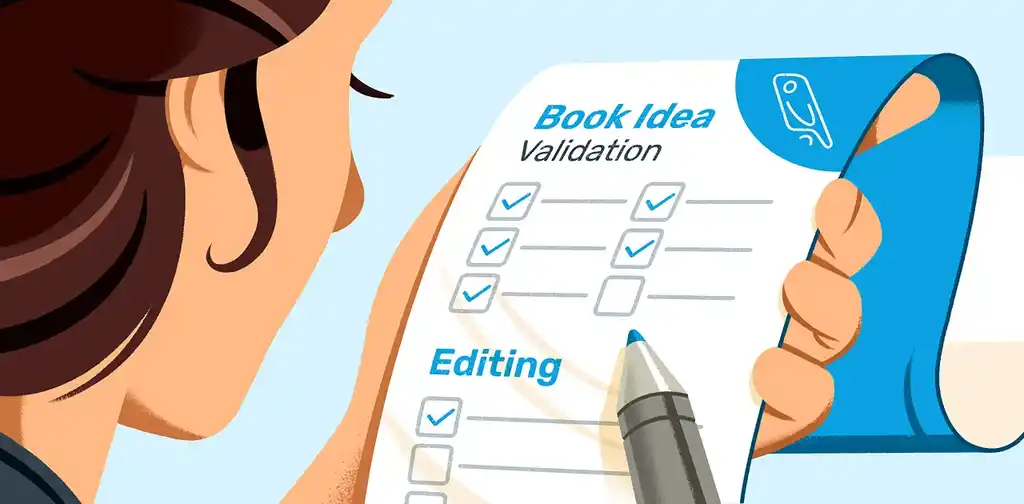Blog • Understanding Publishing
Posted on Sep 10, 2025
Voices by INaudio & Spotify for Authors Review: Are They Worth It?
Loretta Bushell
Loretta is a writer at Reedsy who covers all things craft and publishing. A German-to-English translator, she specializes in content about literary translation and making a living as a freelancer.
View profile →Linnea Gradin
The editor-in-chief of the Reedsy Freelancer blog, Linnea is a writer and marketer with a degree from the University of Cambridge. Her focus is to provide aspiring editors and book designers with the resources to further their careers.
View profile →A few years ago, Findaway Voices was one of the top audiobook creation and distribution services. However, a lot has changed since then. The platform was acquired by Spotify in 2022 and became Findaway Voices by Spotify. Now, in 2025, Voices has been rebranded again and split into two complementary services: Spotify for Authors and Voices by INaudio.
Spotify for Authors offers detailed analytics on audiobooks published directly to Spotify, while Voices by INaudio (led by Findaway veterans Blake Squires and Ralph Lazaro) continues to distribute audiobooks widely. Though they’ve been split, the services are best used together and authors can link their accounts for maximum convenience.
In this article, we’ll evaluate Findaway Voices’ replacement based on seven criteria — eligibility, production, uploading process, distribution, royalties, promotion, and customer service — to determine whether it’s still a good choice for self-publishing authors. But first, here’s a quick overview:
📆 Launched: First launched in 2016 as Findaway Voices; Spotify for Authors was rolled out in 2024 and Voices by INaudio went live in August 2025
📍 Available in: 184+ countries
🌎 Reach: Most countries across the globe
💰 Cost: No upfront costs; Voices by INaudio keeps 20% of net royalties
💸 Royalties: Various
📇 Distribution channels: Spotify, Audible, Apple Books, bibliotheca, and tens of other retailers
🌟 Alliance of Independent Authors’ rating: Excellent (Partner)
👑 Best for: Wide distribution paired with audience insights
|
✅ Pros |
❌ Cons |
|
Available to authors in 184+ countries |
No production services |
|
No requirement to have published the title in another format already |
Restrictions on digital narration |
|
Global reach |
Audiobooks on Spotify are not available in all countries |
|
Complimentary ISBN |
ISBN can’t be used on other platforms |
|
Competitive revenue share rate on INaudio |
Spotify’s royalty system leads to low, untransparent payouts |
|
Valuable insights on Spotify listeners |
No discount codes for marketing |
|
User-friendly dashboards |
|
|
Link accounts to save time |
|
|
No upfront costs |
|
|
Pick and choose which platforms to distribute your audiobook to |
|
|
Set your own suggested list prices |
|
|
Trusted by ALLi |
Read on for an in-depth analysis of Voices by INaudio and Spotify for Authors.
Eligibility criteria (4/5)
Unlike Amazon’s ACX, INaudio and Spotify place very few restrictions on who can self-publish via their platforms. This is a huge pro for authors who are looking for a low-entry platform with wide distribution possibilities (more on this later).
All authors over the age of 18 can sign up to Voices by INaudio. Spotify for Authors is only available in the countries in which Spotify itself operates — which, at 184 countries and counting, is still the vast majority of the world.
You also don’t have to have published your title in print or ebook format to use either service, making it a good choice for authors who are focusing exclusively on the audiobook market. However, you won’t be able to distribute your audiobook to Audible unless your title already exists as an ebook on Amazon.
Want to learn more about Audible’s own audiobook service, ACX? Read here.
Production (0/5)
Although they welcome new authors, INaudio and Spotify are purely focused on distribution for now. That means they don’t actually help writers create their audiobooks. You’ll have to navigate this learning curve yourself — or choose a different audiobook production company.
Fortunately, INaudio’s executives told publishing industry guru Jane Friedman that they’re planning to relaunch audiobook production services in the future, so watch this space.
Uploading process (4/5)
When it comes to uploading your audio files, both platforms offer a user-friendly experience with fairly standard restrictions. No chapter can be longer than 120 minutes, and each file must start with 0.5–1 seconds of silence and end with 1–5 seconds of silence. You can read more detailed audio requirements here.
The good news is that most people don’t have to upload their files twice, as Spotify will share the audiobook with INaudio and vice versa. However, there is an exception: you can upload digitally narrated books to Spotify, but the platform won’t share them with INaudio. This is because INaudio has stricter rules regarding digital narrators: the audiobook has to have been produced using Google Play Books or ElevenLabs if you want to use non-human narrators. Of course, if you use human narration for your book, this restriction doesn't apply.
The other good news is that you don’t need to buy an ISBN if you’re committed to using Spotify for Authors and INaudio exclusively. However, you can’t use their complimentary ISBN on other platforms, so if you plan to publish your audiobook directly to other retailers, you should purchase your own instead.

FREE COURSE
Audiobook 101
Learn to create a professional audiobook and stand out in a growing market.
Distribution (4/5)
One of the major benefits of INaudio and Spotify for Authors is that together they reach every corner of the audiobook world — and they're non-exclusive.
Spotify for Authors only distributes your audiobook to (surprise, surprise) Spotify — and only to the countries where audiobooks are available. But you can reach the rest of the world through Voices by INaudio, which distributes to all major audiobook retailers and libraries, as well as plenty of minor ones.

It’s certainly not necessary to make an account on other platforms if you want to keep things simple — but you can choose not to distribute to certain retailers via INaudio and instead to go to them directly. The main reason to do so would be to cut out the middleman so you can access the full royalties from platforms where you anticipate selling a lot of copies.
Royalties (3/5)
Now, let’s take a look at what you can expect to earn from these two connected platforms.
Voices by INaudio (5/5)
INaudio allows you to set your own suggested list prices — one for retailers and one for libraries. Although the end platforms may change the price as they see fit, most partners pay royalties based on your list price rather than what they actually sell your audiobook for (Audible and Downpour excepted), giving you a lot of control over your earnings.
Exact royalty rates vary by platform, but INaudio takes a competitive 20% of net royalties from all retailers and libraries (though if you have a separate Spotify for Authors account, you’ll retain 100% of your Spotify royalties).
Let’s look at an example. Say you set your list price to $20 and a listener buys your audiobook à la carte from Barnes & Noble. B&N’s royalty rate for à la carte sales is 50%, so INaudio receives $10 in revenue and keeps 20% ($2), leaving you with $8 to take home.
Spotify for Authors (2/5)
As an aggregator, Voices by INaudio can’t be held accountable for the royalty rates authors receive — but Spotify for Authors can. Spotify pays authors according to whether listeners buy their title outright or listen to it as part of their subscription:
|
🎧 Type of listen |
💸 Royalties |
|
À la carte — listeners buy your audiobook for a set price |
50% of the suggested retail price |
|
Pool subscription — listeners pay a fee to access all library content |
Your share of the revenue pool, calculated pro rata based on your share of total consumption |
While the à la carte royalties are decent, the pool subscription model leads to very low (and impossible to predict) payouts. The Society of Authors has expressed concern that authors will end up suffering as much as artists have from the streaming service’s payment terms.
Other authors have accepted that Spotify for Authors is first and foremost a visibility platform, as opposed to an income generator. Indeed, marketing is where this service shines…
Promotion (3/5)
We’ve given the two companies a combined score of 3/5 for promotion, but really, Spotify for Authors deserves more and Voices by INaudio less (for now). Let’s look at why.
Spotify for Authors (4/5)
Besides gaining exposure to Spotify’s 696 million users, Spotify for Authors boosts your visibility by providing you with the insights you need to hone your marketing strategy.
On the Spotify for Authors dashboard, you can see your listeners’ demographics, location data, and favorite podcast categories and authors, helping you to paint a picture of who your audience is and how you might be able to connect with them. This is more valuable for some authors than others, depending on whether your target audience listens to audiobooks on Spotify at all. (57% of Spotify’s audiobook listeners are aged 18–34, for instance, so if your target demographic is outside this range, you might want to take the statistics Spotify offers with a pinch of salt.)

Voices by INaudio (2/5)
Voices by INaudio doesn’t provide such detailed analytics, but it does give you the ability to set promotional discounts for certain retailers (namely Apple, Barnes & Noble, and Chirp), essentially replacing the list price temporarily. You can schedule promotions between 3 days and 6 months in advance.

INaudio’s executives recently told Jane Friedman that they also want to bring back giveaway codes to help authors get downloads and reviews. If introduced, these will surely prove to be valuable marketing tools that bring INaudio in line with its major competitors ACX and Author’s Republic.

FREE RESOURCE
Reedsy’s Book Marketing Checklist
Tick all the boxes, from ads to networking to social media and beyond.
Customer service (2/5)
Since Spotify for Authors and Voices by INaudio are relatively new services, their customer support has not yet been tested to breaking point by authors. However, there are already some complaints on Reddit, indicating this might be one of the drawbacks of these services.
Specifically, INaudio’s customer support has been criticized for not providing clear information and failing to be transparent about its policies.
Anecdotally, Jane Friedman also notes that many indie authors would not go anywhere near Spotify, due to concerns over how it treats artists.
For now, we’ll give customer service a tentative 2/5 and we’ll monitor the situation.
Verdict: Should you publish your audiobook on Voices by INaudio and Spotify for Authors?
Although its track record is yet to be proven, we’re optimistic about Voices by INaudio here at Reedsy. It offers a very wide reach, a user-friendly interface, and favorable payment terms. We’d recommend it to anyone who is comfortable handling audiobook production themselves.
If you’re going to distribute your audiobook via INaudio, you might as well sign up to Spotify for Authors as well and access its valuable audience insights. If you don’t go with INaudio, Spotify for Authors can still be a valuable tool for understanding younger audiences, but we wouldn’t recommend it as your main source of income.
Reedsy Rating: 3/5







